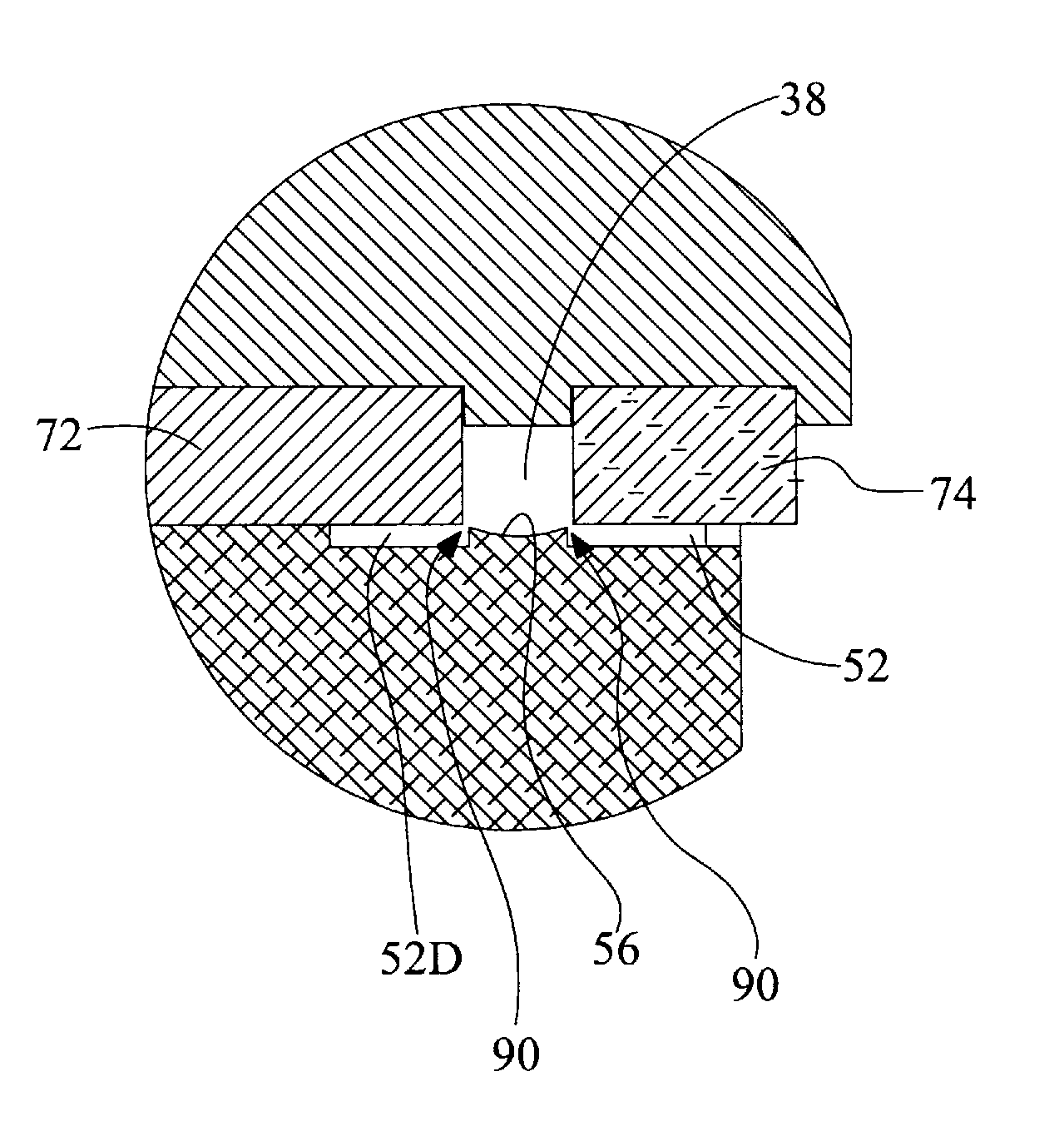Non-linear waveguided laser channel for a gas laser
a gas laser and non-linear waveguide technology, applied in lasers, laser details, active medium materials, etc., can solve the problems of affecting laser performance, affecting laser performance, and increasing the likelihood that any such particle will damage the waveguide optics, so as to maximize the suppression of higher order mode, maximize the formation of uniform discharge, and excellent gas venting
- Summary
- Abstract
- Description
- Claims
- Application Information
AI Technical Summary
Benefits of technology
Problems solved by technology
Method used
Image
Examples
Embodiment Construction
[0020]A partially assembled RF-excited waveguide gas laser module 10 is illustrated in FIG. 1. The module 10 comprises a housing 12 containing a waveguide laser assembly 14 shown exploded in FIG. 2. An end panel 16 is shown removed from the housing to reveal optic adjustment plates 18 having holes 20 for accessing optics adjustment screws as known in the art. A heat sink 22 is shown attached in abutment to a top surface 24 of the housing 12. Screw holes 26 are also provided in the top surface 24 of the housing 12 for attaching other heat sinks, which are not shown for the sake of clarity.
[0021]Referring to FIG. 2, the waveguide laser assembly 14 is shown exploded and removed from a cavity 30 of the housing 12. The waveguide laser assembly 14 comprises a first electrode 32, a second electrode 34 and a dielectric insert assembly 36. Either or both electrodes could be active or “hot”. However, in the embodiment discussed herein the second electrode is the active electrode and the first...
PUM
 Login to View More
Login to View More Abstract
Description
Claims
Application Information
 Login to View More
Login to View More - R&D
- Intellectual Property
- Life Sciences
- Materials
- Tech Scout
- Unparalleled Data Quality
- Higher Quality Content
- 60% Fewer Hallucinations
Browse by: Latest US Patents, China's latest patents, Technical Efficacy Thesaurus, Application Domain, Technology Topic, Popular Technical Reports.
© 2025 PatSnap. All rights reserved.Legal|Privacy policy|Modern Slavery Act Transparency Statement|Sitemap|About US| Contact US: help@patsnap.com



